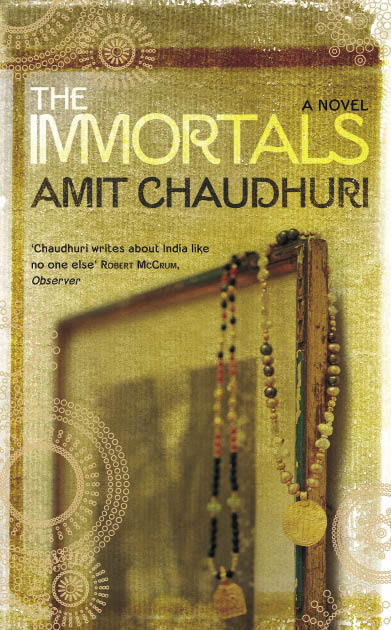An earnest young man upbraids his singing teacher. ‘Why don’t you sing classical more often?’ It is Bombay in the early Eighties. The young man’s father has enjoyed a successful career in management, with the result that ‘his childhood had been almost entirely chauffeur-driven’. His singing teaching, peddling remarkable gifts to earn an unremarkable living in the rambunctious city in which his talent is only one among many, is older and pragmatic.
You cannot practise art on an empty stomach. Let me make enough money from these lighter forms; and then I’ll be able to devote myself entirely to classical.
The argument is not a new one. Amit Chaudhuri’s latest novel successfully revisits a debate about the role and place of art in the human experience. It does so with insight, irony and humour.
The young man is Nirmalya Sengupta, the only child of Apurva and Mallika Sengupta. Mr Sengupta works for ‘the company’. In time he is appointed managing director. The Senguptas’ lives change accordingly: they move house with each promotion, affluence tightens its cocoon, the corporate drinks party occupies the place in Mrs Sengupta’s life once devoted to singing. But Mallika retains her teacher, Pandit Shyam Lal — ‘Shyamji’. In time Shyamji also becomes Nirmalya’s teacher. He is simultaneously central to the Senguptas’ family life and significantly remote from it.
The Senguptas’ wordly success mirrors a decline in the seriousness of Mallika’s approach to her singing. As a young adult, Nirmalya is painfully aware of his mother’s abandonment of her gifts for the flimsier pleasures of the hairdresser’s salon and cocktail parties. He determines to save her — ‘he exorted his mother to get back to singing’ — but Mallika is content with her lot. ‘She knew she could have been famous; but she had opted for the life of a Managing Director’s wife.’
The Immortals is a gentle, unshowy novel. Chaudhuri eschews dramatic fireworks in favour of instances of mordant insight and affectionate humour (particularly directed against Nirmalya’s parents), which stud the text like currants in a rock bun.
Mr Sengupta had just been made Head of Finance. He was steadying himself after the congratulations; he was weary of the felicitatory food he’d eaten at parties — he felt full all the time.
The narrative spans the period of Nirmalya’s childhood, advancing seamlessly through the years against a richly detailed backdrop of Bombay’s smarter residential quarters.
Chaudhuri’s prose has a luminous, unforced elegance which is consistently engaging and wholly delightful, though readers unfamiliar with the trappings of Indian life may regret the absence of a glossary. If The Immortals reaches no dramatic conclusions, its spheres of enquiry — a young man’s coming of age, his parents’ acceptance of the perimeters and possibilities of the lives they have made for themselves — possess universal appeal which resonates beyond the confines of this accomplished and absorbing novel.






Comments